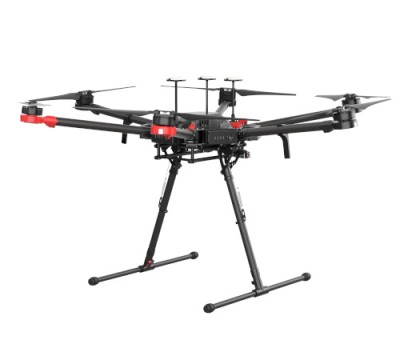Drones Have the Potential to…

Whether you’re a farmer, engineer, or a business owner, drones have the potential to improve your operations. They can do everything from deliver essential goods to gather real-time data. They can even survey and inspect renewable sources.
Deliver essential goods and medical supplies
Whether you are a health care provider, a start-up enterprise, or an established company, you can now deliver essential goods and medical supplies with drones. This innovative technology can free up time for people, which can be used to better treat patients and diagnose disease. And, as a result, it can improve timeliness and accessibility, as well as reduce inequity in access to health care for communities around the world.
The rapid delivery of medicines, vaccines, and other life-saving medical supplies could help to quench outbreaks of communicable diseases, allowing for faster diagnosis and treatment of epidemics. This type of health care access is especially important in a world where two billion people still lack basic medicines.
A US-based medical drone company pioneered medical deliveries in Rwanda. It delivers vital medical supplies, such as blood, to rural clinics in Africa. Its mission is to provide affordable, access to life-saving medicines.
Gather real-time data
Using drones is a great way to collect real-time data. The ability to gather this information quickly can help you to make decisions and improve operations. It can also be used to identify potential risks before they happen. For example, drones can be used to scan for blind spots. They can also provide a bird’s eye view of a job site. You can even use drones to create a virtual walkthrough. You can then incorporate the footage into safety plans.
While it’s possible to gather real-time data with drones, it’s also necessary to ensure that the data is presented to the right people as soon as it’s collected. This means that a communication system is needed to move information from the drones to the DB. It must be able to cope with intermittent communication, high package loss, and drones flying in and out of communication range.
Improve safety for agribusinesses
Creating a safety culture is a must in the agribusiness industry. This will not only benefit your employees, but it will also increase productivity.
There are many hazards in the farming industry. Agricultural equipment can be dangerous and result in injuries. Other hazards include pesticides and livestock.
Good safety culture practices can prevent accidents, reduce downtime, and reduce the cost of injuries. These practices can also protect your employees and the community.
There are many different safety programs available for agribusinesses. Some of them are designed to be simple and straightforward. Others are more complicated and may require more technical expertise. But no matter what system you implement, there are two main laws that regulate workplace safety.
One law is the Federal Insecticide, Fungicide, and Rodenticide Act, or FIFRA. This law requires employers to provide safety training for workers. The most important thing to remember is that this should be conducted periodically.
Survey and inspect renewable sources
Using drones to survey and inspect renewable sources is one of the newest trends in the industry. They have proven to be a reliable solution, saving time and money. Aerial inspections can be used to identify faults before they cause damage. They can also help to ensure that the solar farm is working at its peak efficiency.
The solar energy industry is highly dependent on routine maintenance. Inaccurate inspections can lead to a loss in efficiency, and ultimately affect the return on investment.
Drone-powered solutions have empowered PV systems to increase efficiency. This is because of their ability to gather accurate data. It has also been proven that they provide practical information that companies can use to meet regulations and specifications.
There are numerous examples of how drones have been used to improve the efficiency of solar farms and other renewable energy sources. Using drones to survey and inspect wind turbines and other equipment, for example, can lead to a significant reduction in costs.
Transform business models
Across a variety of industries, drones have the potential to transform business models. They offer cost-effective aerial photography, safe aerial video and access to new angles, all without the need for pilot control. They can also survey large areas. Their use-cases are growing and they are poised to transform the way people and goods move.
Passenger drones can reduce air pollution and commute times, as well as provide increased productivity. Construction companies are also using drones to gather information about the site and inspect buildings. They can be used to survey hundreds of acres of crop, allowing for greater depth and accuracy of inspection. A number of governments have started to explore drone-based services, including transportation and inspection. However, regulatory barriers and technological limitations may slow their adoption.